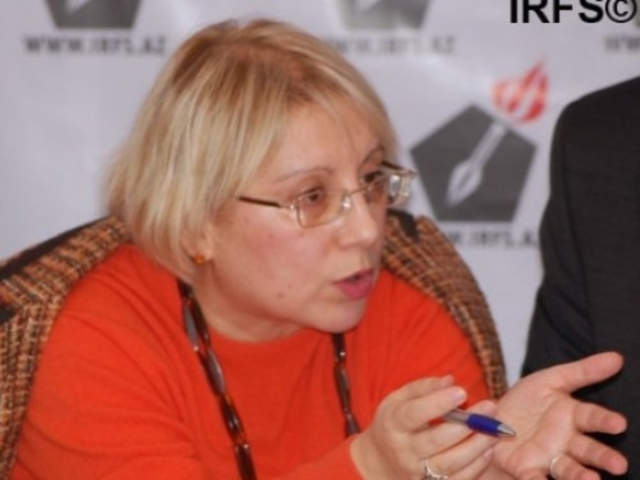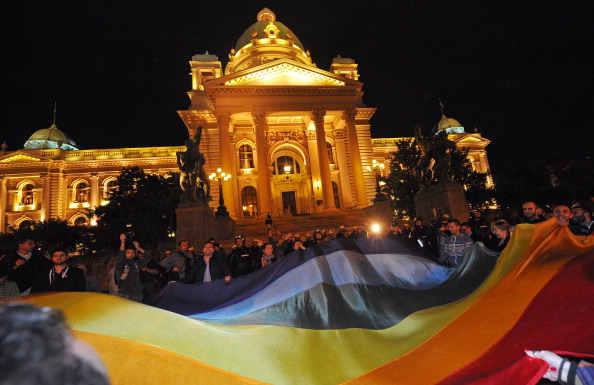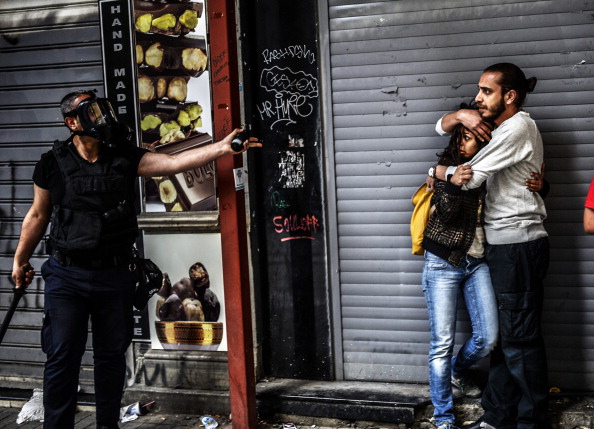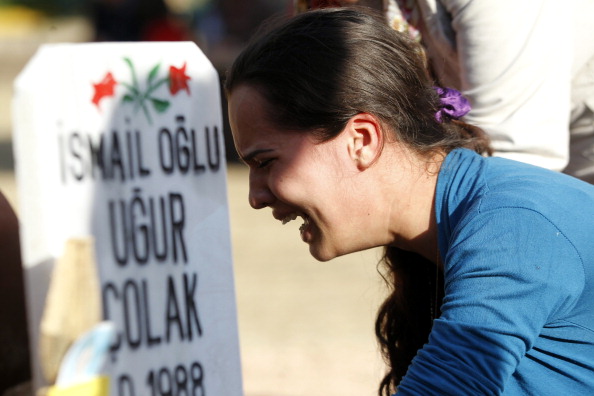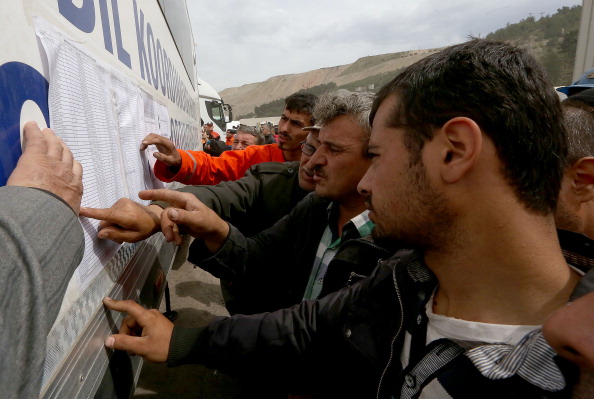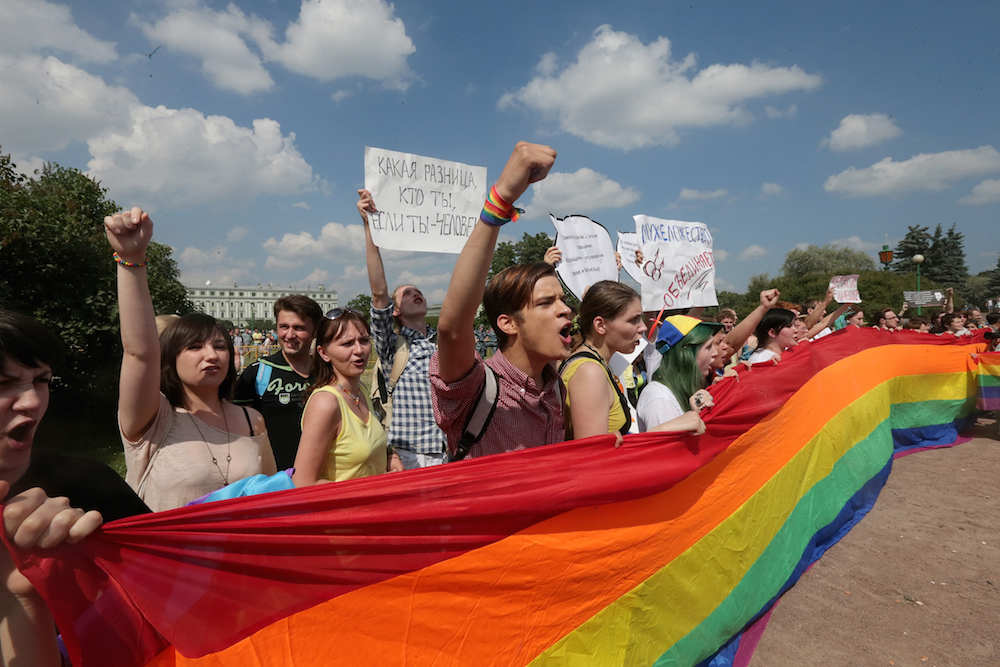
LGBT activists take part in a Gay Pride event in St. Petersburg, Russia, 29 June 2013. (EPA/ANATOLY MALTSEV)
Across the globe, lesbian, gay, bisexual, and transgender people (LGBT) continue to face endemic violence, legal discrimination, and other human rights violations on account of their sexual orientation or gender identity. As we move from International Day Against Homophobia, Transphobia and Biphobia this week to Pride month in the United States, Amnesty International stands with everyone working to guarantee the fundamental human rights of all persons, regardless of sexual orientation or gender identity. SEE THE REST OF THIS POST




